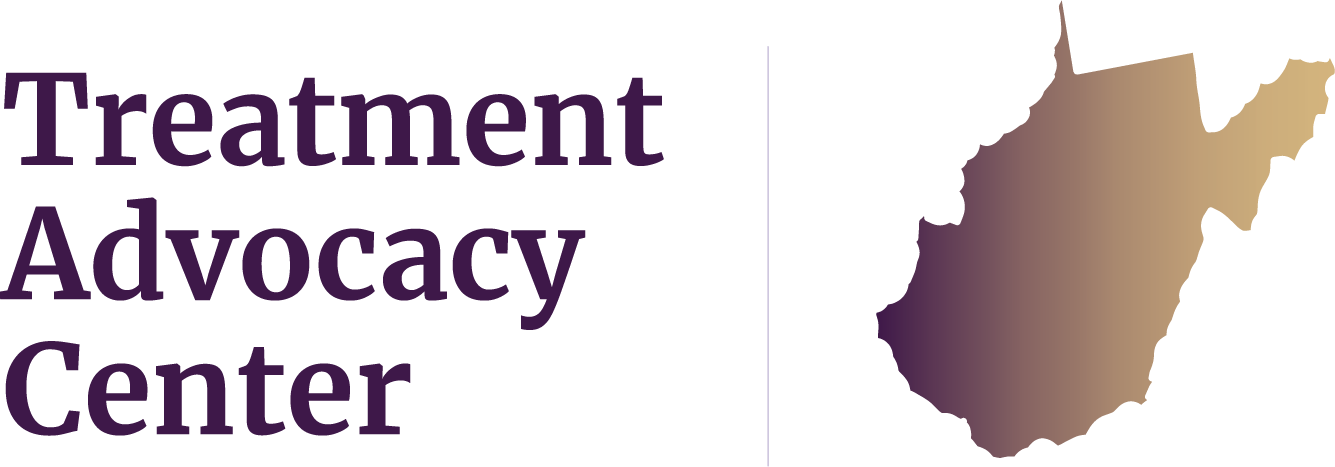Family Resources in Resources in West Virginia
- West Virginia Bureau for Behavioral Health (dhhr.wv.gov) Resources and contacts
- HELP4WV (help4wv.com) Call or text 844-435-7498 or chat online for mental health care support
- Office of the WV Attorney General Fighting Substance Abuse (ago.wv.gov) Addiction support and resources
- West Virginia 211 (wv211.org) Call, chat, text for resources
- Disability Rights of West Virginia (drofwv.org) Protection and advocacy for individuals with disabilities
- Homeless Information: West Virginia | U.S. Department of Housing and Urban Development (hud.gov/states/west_virginia) Shelter locator and links to local resources
- West Virginia Division of Corrections and Rehabilitation (dcr.wv.gov) Offender search within jails and prisons
- West Virginia State Bar (wvbar.org) Legal assistance
How many people in West Virginia have SMI?
individuals with severe mental illness.
individuals with SMI who receive treatment in a given year.
of the adult population is estimated living with a SMI in the United States.
State psychiatric hospital beds in West Virginia
2023 total beds: 300
- Civil beds: 225
- Forensic beds: 75
2023 beds per 100,000 people: 16.9
Click here for more information about state psychiatric hospital beds in West Virginia.
A minimum of 50 beds per 100,000 people is considered necessary to provide minimally adequate treatment for individuals with severe mental illness. West Virginia fails to meet this minimum standard.
For Additional Information
Data is a powerful tool to advocate for change. Curious about a specific data point in your state? Reach out to us at ORPA@treatmentadvocacycenter.org
Fast Facts on SMI in West Virginia
Deinstitutionalization, outdated treatment laws, discriminatory Medicaid funding practices, and the prolonged failure by states to fund their mental health systems drive those in need of care into the criminal justice and corrections systems.
20%
2,147
300
7 to 1
2021 West Virginia State Mental Health Agency's expenditures
Every state receives block grant funding from the federal government to provide mental health services to their community. Below is some information about how these dollars are spent and compares to other state spending.
$184,654,624
71%
$6,082
1.1%
West Virginia's Treatment Laws
W. VA. CODE §27-5-2(a). Any adult person may make an application for involuntary hospitalization for examination of an individual when the person making the application has reason to believe that the individual to be examined has a substance use disorder as defined by the most recent edition of the American Psychiatric Association in the Diagnostic and Statistical Manual of Mental Disorders, inclusive of substance use withdrawal, or is mentally ill and because of his or her substance use disorder or mental illness, the individual is likely to cause serious harm to himself, herself, or to others if allowed to remain at liberty while awaiting an examination and certification by a physician, psychologist, licensed professional counselor, licensed independent social worker, an advanced nurse practitioner, or physician assistant as provided in subsection (e) of this section: Provided, That a diagnosis of dementia, epilepsy, or intellectual or developmental disability alone may not be a basis for involuntary commitment to a state hospital.
W. VA. CODE § 27-5-4(b). Final commitment proceedings for an individual may be commenced by the filing of a written application under oath by an adult person having personal knowledge of the facts of the case. W. VA. CODE § 27-1-12. (a) “Likely to cause serious harm” means an individual is exhibiting behaviors consistent with a medically recognized mental disorder or addiction, excluding, however, disorders that are manifested only through antisocial or illegal behavior and as a result of the mental disorder or addiction: 1. The individual has inflicted or attempted to inflict bodily harm on another; 2. The individual, by threat or action, has placed others in reasonable fear of physical harm to themselves; 3. The individual, by action or inaction, presents a danger to himself, herself or others in his or her care; 4. The individual has threatened or attempted suicide or serious bodily harm to himself or herself; or 5. The individual is behaving in a manner as to indicate that he or she is unable, without supervision and the assistance of others, to satisfy his or her need for nourishment, medical care, shelter or self-protection and safety so that there is a substantial likelihood that death, serious bodily injury, serious physical debilitation, serious mental debilitation or life-threatening disease will ensue unless adequate treatment is afforded. (b) In making the “likely to cause serious harm” determination, judicial, medical, psychological and other evaluators and decisionmakers should utilize all available information, including psychosocial, medical, hospitalization and psychiatric information and including the circumstances of any previous commitments or convalescent or conditional releases that are relevant to a current situation, in addition to the individual's current overt behavior. The rules of evidence shall be followed in making the “likely to cause serious harm” determination except that hearsay evidence not admissible thereunder may be admitted, except where precluded by statute, if it is of a type commonly relied upon by reasonably prudent persons in the conduct of their affairs.


Recommended updates to treatment laws
- 1
Amend W. Va. Code § 27-5-2(h) in order to (1) provide additional procedural detail, (2) require periodic reporting to the court, (3) codify the process for renewal of an order, and (4) include a requirement that a written treatment plan be submitted to the court
- 2
Adopt a provision to authorize assisted outpatient treatment directly from the community without mandatory prior hospitalization and remove language requiring outpatient commitment be based solely on voluntary agreement
- 3
Adopt express procedures for the court to monitor uncontested AOT orders entered into voluntarily to give the benefit of the black robe effect to all enrollees
